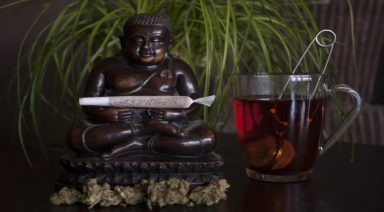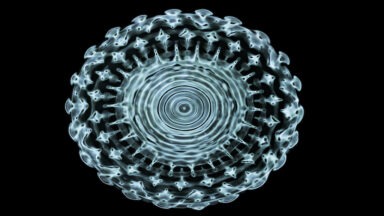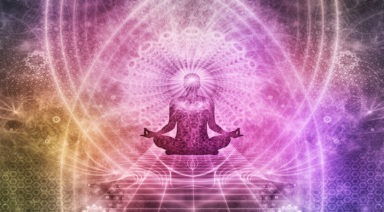New Studies Find Psychedelics Highly Effective for Alcoholism

New studies show unprecedented success in the treatment of alcoholism with psychedelic therapy.
The psychedelic revolution in mental health has produced overwhelming scientific evidence demonstrating the great efficacy of psychedelics in the treatment of various mental health disorders. Now, several new studies involving the drugs ketamine and MDMA are showing significant promise in the treatment of alcoholism.
Dr. Ben Sessa is a psychiatrist and chief medical officer at Awakn Life Sciences, an English biotech company that is at the forefront of the research, development, and delivery of psychedelic medicines.
The company is especially focused on the treatment of Alcohol Use Disorder or AUD, given how prevalent and challenging it is to treat.
“Alcoholism is a huge public health problem. It’s also a psychiatric condition that’s very poorly treated with very poor outcomes with traditional methods,” Sessa said. “Relapse to drinking after getting dry is around 80 to 90 percent at 12 months. That’s an embarrassingly poor statistic. Psychedelics offer a completely new approach; they offer the patient to explore the root causes of addiction, which so often is trauma. Psychedelic-assisted psychotherapy is an intensive upfront piece of work that gets the patient better, so they don’t have to keep coming back. It is a completely different paradigm shift to the way we currently manage patients in maintenance therapies.”
A recent study conducted by researchers at the University of Exeter and Awakn Life Sciences is the world’s first to examine the use of ketamine to treat AUD in a randomized controlled trial.
“Ketamine is a very well-established human medicine. It is indeed the only psychedelic that’s licensed as a medicine, as an anesthetic medicine, and has been used since the 60s as such. It’s an incredibly safe medicine. When it’s used at a much lower dose, it produces an altered state of consciousness. What we do in psychedelic-assisted psychotherapy with ketamine, is we use this altered state of consciousness to affect a more effective and deeper form of psychotherapy. So, we’re using ketamine as an adjunct to psychotherapy to treat addictions,” he said.
Participants in the study had all just completed a medically supervised alcohol detox program. Those in the experimental group received treatment with both ketamine and a form of psychotherapy called KARE over the course of four weeks.
“The group that received ketamine and specific KARE psychotherapy led to an 86 percent abstinence rate at six months — absolutely blows out of the water the current best treatments for alcoholism,” Sessa said.
Just what accounts for these astounding results?
“So we know a fair bit about the mode of action of ketamine, you literally grow new brain tissue after taking ketamine,” Sessa said. “Now, this is hugely helpful because when you combine that — when you think of it as a super-ripe brain bristling with neuronal activity — with psychotherapy in which you are asking the patient to address the psychological issues that are usually around stuck, rigid narratives they hold, then you can grow this new neural tissue in the direction you want to have changes to their psychology. This is a huge breakthrough for addictions, which is so much about rigidity and stuck-ness.”
The implications of this groundbreaking study are truly profound.
“Once we get the drug actually licensed and approved for, specifically, alcohol-use disorder, it hugely broadens the accessibility and far more clinicians would be willing to be using this in a much broader way. So, it will really radically change the field of treatment of alcoholism all over the world,” he said.
In addition to their work with ketamine, Awakn has also recently completed a study with another psychoactive drug MDMA which has yielded equally significant findings.
Watch Pt. 2 of our interview with Dr. Ben Sessa:
Cannabis Spirituality: Using Plant Medicine as a Sacred Tool

The stoner stereotype is a familiar one that transcends cultures – lazy, incoherent, silly, and just generally burnt out. But as legalization allows cannabis to be discussed maturely, that trope seems like a dying remnant of the decades-long smear campaign against a plant that can truly impact our lives, culture, and economy in a positive way. With that relaxation of stigma, society can explore a path of cannabis use for spirituality and use it as a tool for inner exploration.
Much like any other psychedelic substance, cannabis can be abused and consumed without respect to its potency, power, or healing potential. There’s virtually no harm in using it as a tool to relax and decompress from life’s daily stresses, but some might argue there’s a point of diminishing return when consuming copious amounts without the right intention.
And for religions that consider the plant sacred, this is typically their view on the use of cannabis — using it heedlessly is considered a sin or frowned upon, while using it for enlightenment or spirituality is accepted, and in some cases, encouraged.
Original Cannabis Spirituality
Cannabis has been used by certain groups as a sacrament for centuries and in some cases maybe even millennia. One of the most notable groups is Rastafarians, who use the plant for meditation and spiritual ceremonies, gathering in a “reasoning” to give praise to Jah (God), who they believe bestowed the herb to man in order to invoke thoughtful insight and self-reflection.
Rastafarians believe cannabis is mentioned in the Bible in Psalm 104:14 where it was written, “He causeth the grass to grow for the cattle and herb for the service of man….”
And in Revelation 22:2 “the herb is the healing of the nations.”
Rastafarianism believes cannabis was used as a sacrament by Moses and the Israelites. Rastas and some Jews believe the plant kaneh bosm, mentioned five times in the Old Testament, was in fact cannabis and an important sacrament for Judaism. Jewish scholars disagree on the translation, but if correct it would imply that the Hebrew Bible was originally blessed with cannabis oil.




































